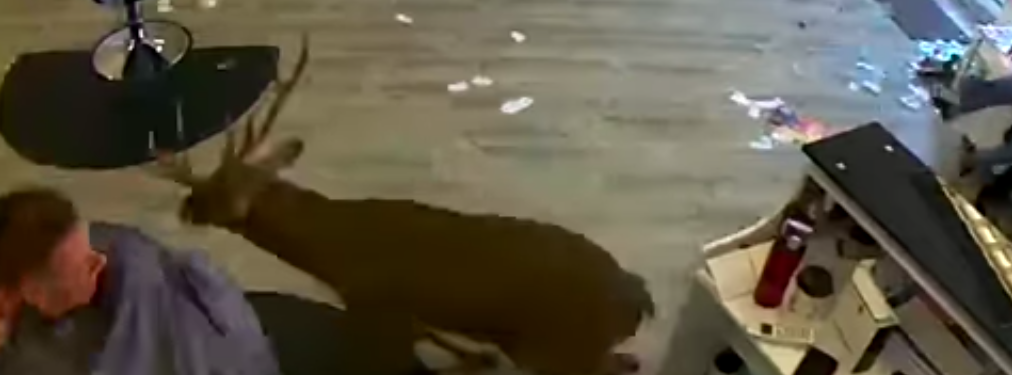For 17 years, Kai and Riku saw each other daily, but were never able to properly meet.
The bears lived in small cages with concrete floor and space enough only for a few steps locked away at a Japanese museum.
This was the drudgery of their daily life.
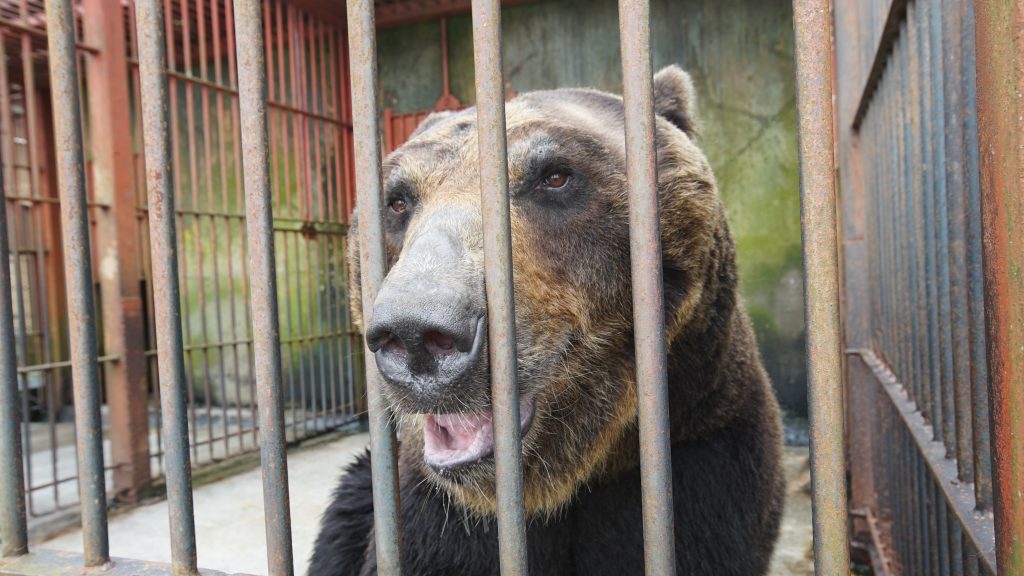
But after a a two-year rescue plan, and 5,400-mile journey to an animal sanctuary in the United Kingdom, the bears have finally been allowed to interact and play.
“What an amazing morning,” the Yorkshire Wildlife Park wrote on Facebook this week. “Earlier today, our Rangers introduced brother Kai and Riku together for the very first time. After 17 years of living next to each other, but never having been in contact with another Bear, it was a fantastic moment.”
The pair is among four Ussuri Brown Bears removed from the outdated cages at the Ainu Cultural Museum on the northern island of Hokkaido. Also joining Kai and Riku at the sanctuary are Amu and a very playful female named Hanako.
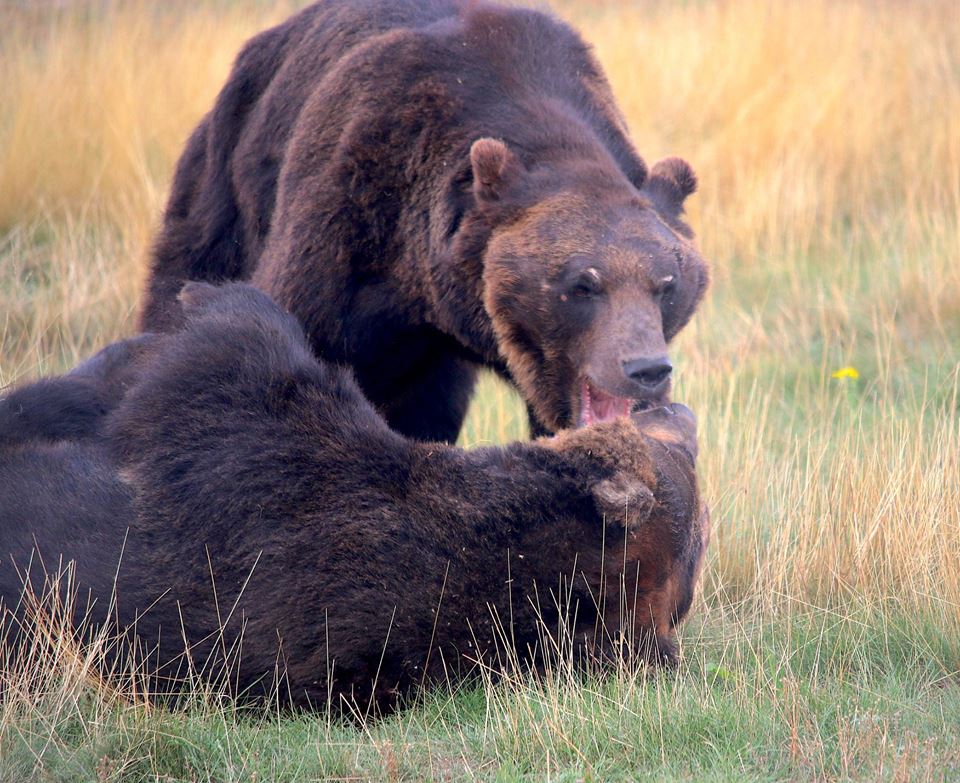
The Yorkshire Wildlife Park located just outside Doncaster, South Yorkshire.
It is home to other species at risk, many rescued from other facilities, including black rhinos, polar bears and lions.
The bears made their way to the wildlife facility earlier this month with a transport plan that went like “clockwork,” according to the sanctuary’s animal manager Debbie Porter.
“It was a very emotional day,” she said in a statement. “Everybody was really pleased to take part in something so big. It had a really lovely feel to it.”
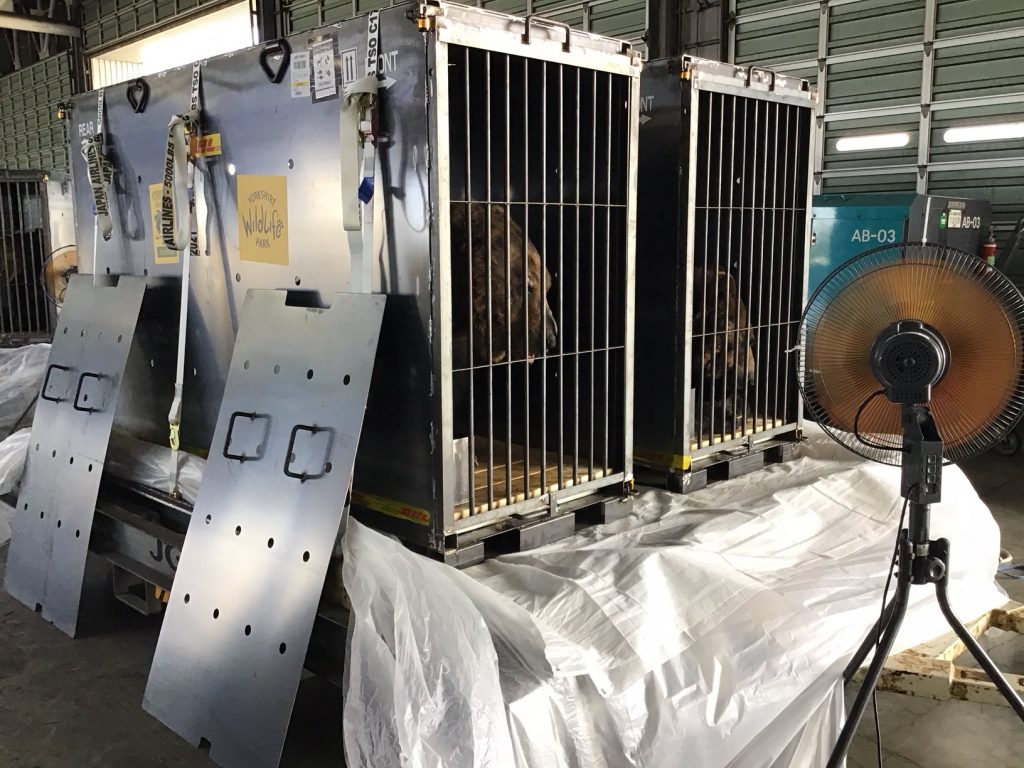
Once on the ground on the other side of the world, the bears spent a few days getting used to their new indoor and outdoor environments, which includes acres of open-air pastures.
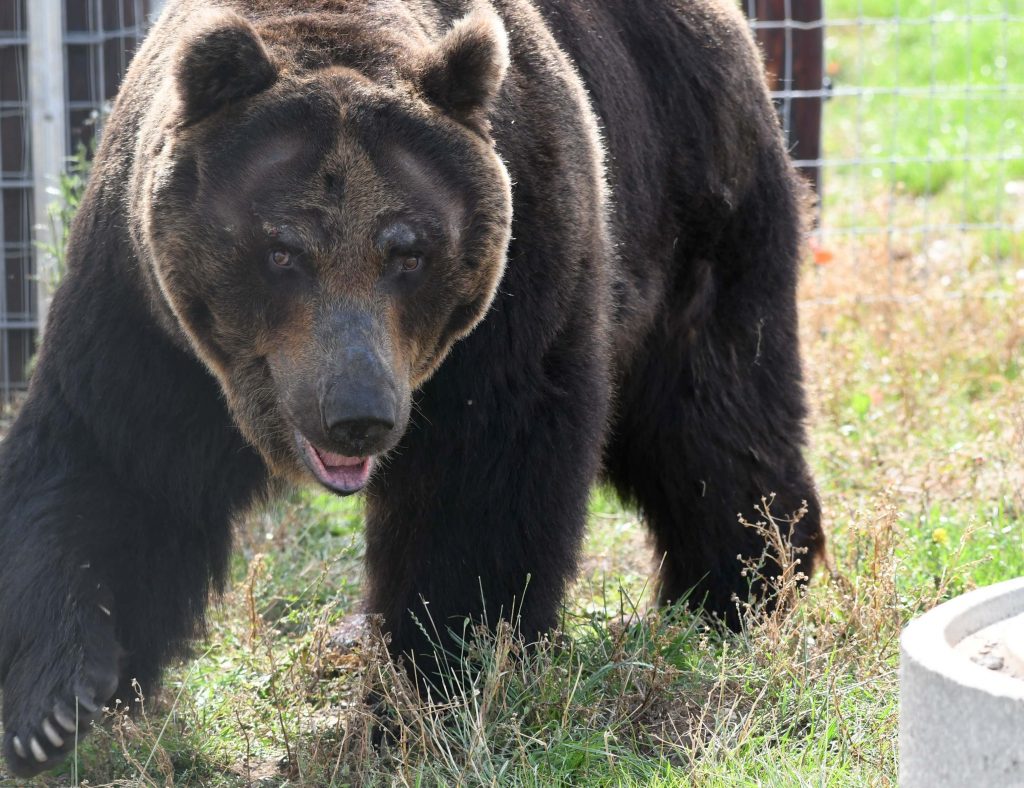
“We are fortunate we have the space, animal management skills and experience to rehome these bears that will require specialist care and it is great to welcome them to Yorkshire,” John Minion, the park’s CEO said. “We are grateful to the Ainu Museum for releasing the bears to us where we will be able to give them a secure future.”
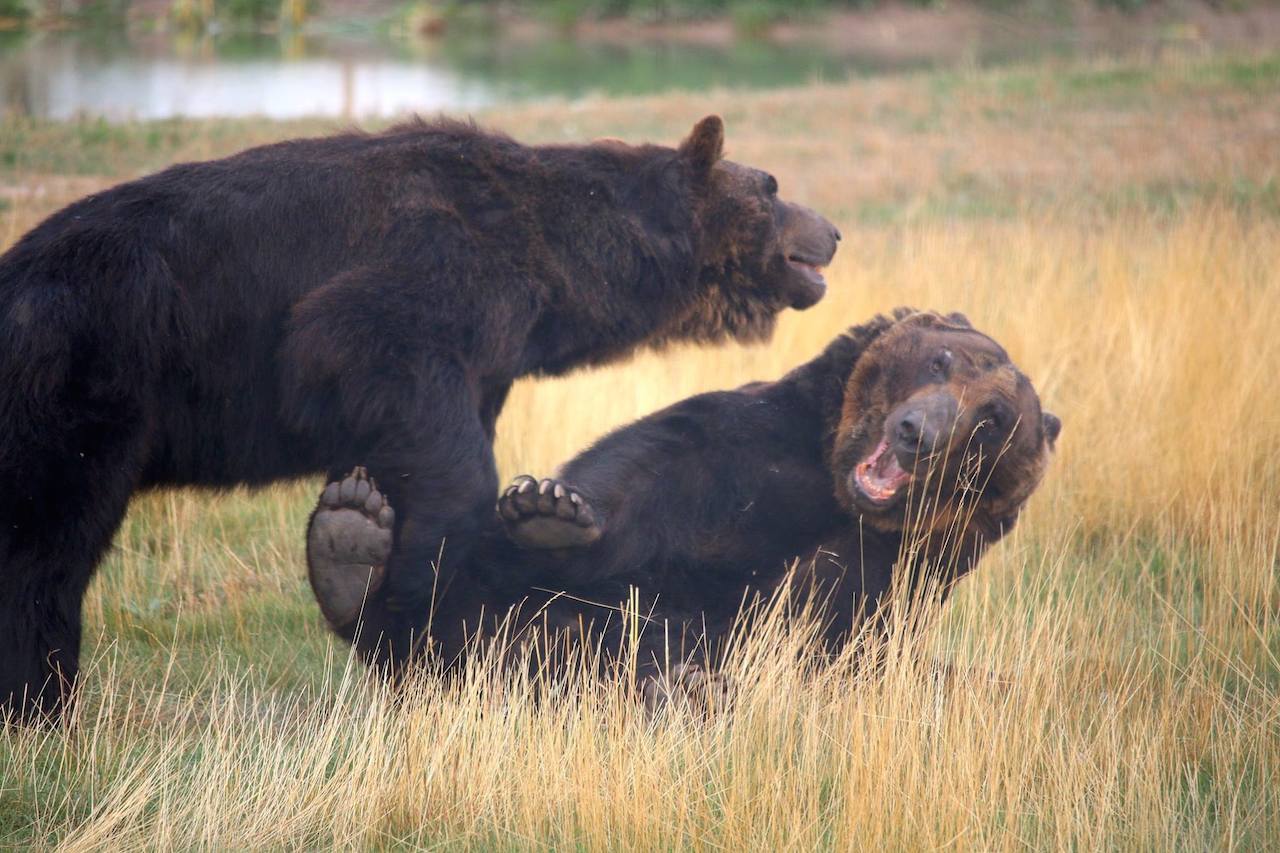
Habitat loss, hunting for body parts and skins threatened the species. There are around 10,000 of these bears left in Japan.
“The Ainu Museum bears came to our attention a few years ago and we’ve been working closely with them, Japanese animal welfare NGOs and zoo experts to try to find a more suitable home for them,” said Georgina Groves, project director of the UK charity Wild Welfare.
Now, they are at the Yorkshire Wildlife Park for the rest of their lives.

Groves said the facility has a “great track record and we know they will provide the bears with a home where they can receive the rehabilitation, enrichment and life-long care they need.”
But the proof is in the first images of freedom.
“How BEAUTIFUL is it to see this?” the facility said.
Photos Yorkshire Wildlife Park/Facebook


